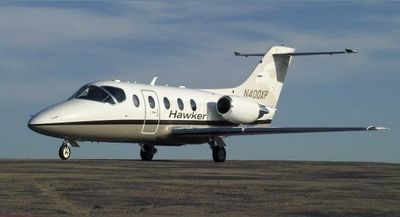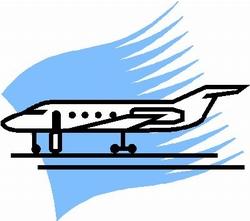Coyne Calls Plan 'Remarkably Lopsided And Myopic'
 In a release, the National Air
Transportation Association (NATA) has voiced its response to the
FAA's just-released reauthorization proposal which would
incorporate a host of new operational and certification user fees
and establish an Air Transportation System Advisory Board.
In a release, the National Air
Transportation Association (NATA) has voiced its response to the
FAA's just-released reauthorization proposal which would
incorporate a host of new operational and certification user fees
and establish an Air Transportation System Advisory Board.
"We are disappointed with the lack of vision and stakeholder
equity in the FAA’s proposal," said NATA President James K.
Coyne. "Given the amount of time the administration has had to
develop the proposal, it is remarkably lopsided and myopic."
NATA says its disturbed by the following provisions of the FAA's
proposal:
- A spike in the current fuel tax of 21.8 cents per gallon to a
whopping 70.0 cents per gallon
- A reduction in the Airport Improvement Program funding by more
than 20 percent over current fiscal year levels
- Implementation of new user fees for a wide array of
certification services affecting general aviation businesses
- Generation of nearly $600 million fewer dollars than the
existing financing structure in FY 2008 according to the
President’s budget
Perhaps most disturbing for NATA is the proposed Air
Transportation System Advisory (ATSA) Board which would be
dominated by the airlines without a single representative from
on-demand charter carriers or fractional ownership providers -- two
groups NATA believes provide a sizeable contribution to the
aviation trust fund.
"This board, as proposed, is totally dominated by airline
representation," said NATA's vice president of government and
industry affairs Eric R. Byer. "There is no excuse for ignoring the
charter and fractional communities. The FAA proposes to include at
least three airline operatives on the ATSA Board, but totally
ignores the airlines' direct competitors – charters and
fractional – revealing the agency’s bias towards the
airlines."
NATA says the assessment of a user fee on operations conducted
at America's 30 most congested airports are "largely discriminatory
against general aviation operations, including charter and
fractional ownership, in hopes of preventing these operations at
the nation's busier commercial airports," said Byer. "By law, the
FAA's mission is to ensure air safety. Has the FAA conducted any
analysis of potential negative safety consequences that could
result from the proposed fee-for-service system? Pilots may avoid
utilizing certain radar-controlled facilities due to the associated
fees and choose to use potentially less safe alternatives because
of lower or nonexistent fees."

NATA also wonders about the inclusion of an apparent blunder by
the FAA in structuring which taxes and fees charter and fractional
operators would pay under the new system. NATA says in its
proposal, the FAA has assumed -- incorrectly -- charter and
fractional operators purchase their fuel as the airlines do,
essentially tax-free. It says fuel for these operations is almost
universally purchased at the higher general aviation rate, after
which operators apply for a refund.
"Although it would appear by the FAA's statements that they
intend to subject charter and fractional operations to the same
user fees as the airlines, the proposed legislative language
doesn't accomplish their goal. In fact, our analysis shows that the
legislation as written would tax charter and fractional operations
the same as all other general aviation flights. How does the FAA
expect us to trust them when it comes to their accounting and cost
allocation system when they clearly do not understand how the
current system works and cannot seem to even properly draft
legislation to impose their new user fee regime?" Byer asked.
 "I think Congressman
Vernon Ehlers said it best at yesterday’s House Aviation
Subcommittee hearing that this proposal is 'dead on arrival,'"
stated Byer. "Congressman Sam Graves also raised a very valid point
that in the negotiation process two sides start at extreme ends of
an issue and work towards the middle to come to resolution. This
proposal does not even get interested parties sitting down at a
table."
"I think Congressman
Vernon Ehlers said it best at yesterday’s House Aviation
Subcommittee hearing that this proposal is 'dead on arrival,'"
stated Byer. "Congressman Sam Graves also raised a very valid point
that in the negotiation process two sides start at extreme ends of
an issue and work towards the middle to come to resolution. This
proposal does not even get interested parties sitting down at a
table."
"This proposal is deeply disturbing as it is the initial step in
what is supposed to be a thoughtful discussion as to how we as a
nation can better improve our air transportation system, including
air traffic control, and how we end up paying for these changes,"
Byer concluded. "We urge all aviation service businesses and
Members of Congress to review the FAA's proposal very cautiously,
recognizing the numerous flaws contained within it so when Congress
works on their own proposals they do not contain the same mistakes
the FAA has offered."
 ANN's Daily Aero-Linx (05.06.25)
ANN's Daily Aero-Linx (05.06.25) ANN's Daily Aero-Term (05.06.25): Ultrahigh Frequency (UHF)
ANN's Daily Aero-Term (05.06.25): Ultrahigh Frequency (UHF) ANN FAQ: Q&A 101
ANN FAQ: Q&A 101 Classic Aero-TV: Virtual Reality Painting--PPG Leverages Technology for Training
Classic Aero-TV: Virtual Reality Painting--PPG Leverages Technology for Training Airborne 05.02.25: Joby Crewed Milestone, Diamond Club, Canadian Pilot Insurance
Airborne 05.02.25: Joby Crewed Milestone, Diamond Club, Canadian Pilot Insurance





